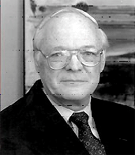 |
| John Neff |
| Source: CFA Institute |
| Born: | |
| Affiliations: |
|
| Most Famous For: | John Neff\'s average annual total return from Vanguard\'s Windsor Fund during his 31-year tenure (1964-1995) as portfolio manager was 13.7%, against a similar return from the S&P 500 Index of 10.6%. He showed a great consistency in topping the market\'s return by beating the broad market index 22 times during his tenure and was regularly in the top percent of money managers. He was considered the "professional\'s professional," because many fund managers entrusted their money to him with the belief that it would be in safe hands. |
Personal Profile
Neff graduated suma cum laude with a Bachelor of Arts degree from the University of Toledo Cleveland , where he stayed for eight years, he obtained his Master of Business Administration from Case Western Reserve University
He joined the Wellington Management Co. in 1964, becoming the portfolio manager of the Windsor
Investment Style
John Neff did not describe himself as either a value or contrarian investor, preferring instead to characterize his investing approach to one of buying "good companies, in good industries, at low price-to-earnings prices." Despite his value-contrarian investor disclaimer, Neff's investment management career shows a considerable amount of this type of investing strategy.
Neff practiced portfolio concentration over diversification. He pursued stocks of all sizes – large, small, and medium – as long as they evidenced low P/E ratios, which he described as "low P/E investing." Two of Neff's favorite investing tactics were to buy on bad news after a stock had taken a substantial plunge and to take "indirect paths" to buying in to popular industries. This involved, for example, buying manufacturers of drilling pipe that sold to the "hot stock" (too pricey for Neff) oil service companies.
He preached against participating in "adrenaline markets" (momentum driven) and preferred face-to-face meetings with a company's management to assess its integrity and effectiveness. For most individual investors, this type of contact is not a realistic possibility; however, using Neff's rigorous fundamental analysis techniques as applied to a company's financials will turn up enough management performance indicators to compensate for the inability to directly interact with a company's managers.
As noted by Ryan Furman in his July 2006 interview with Neff for the Motley Fool, "most great investors are serious bookworms." John Neff is no exception: "He gained notoriety for taking all of his weekly Wall Street Journal copies home for a second read during the weekend." Furman also reported that Neff reads Value Line religiously. Stock investors would be well advised, like Neff, to give these two sources of investing guidance as much attention as possible.
Publications
- "John Neff On Investing" by John Neff and Steven L. Mintz (2001)
Quotes
"It's not always easy to do what's not popular, but that's where you make your money. Buy stocks that look bad to less careful investors and hang on until their real value is recognized."
"I've never bought a stock unless, in my view, it was on sale."
"Successful stocks don't tell you when to sell. When you feel like bragging, it's probably time to sell."
No comments:
Post a Comment